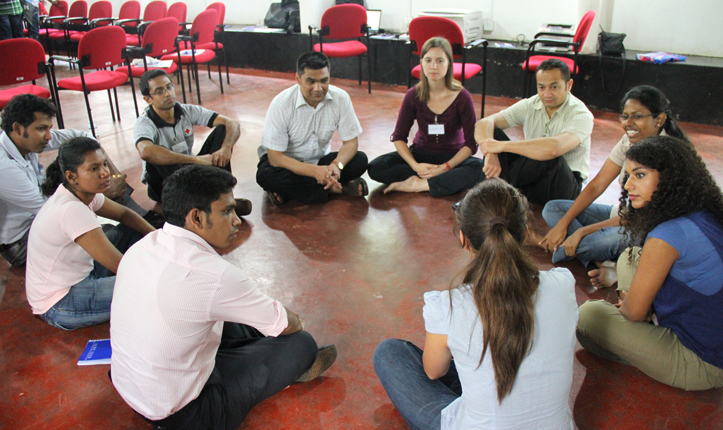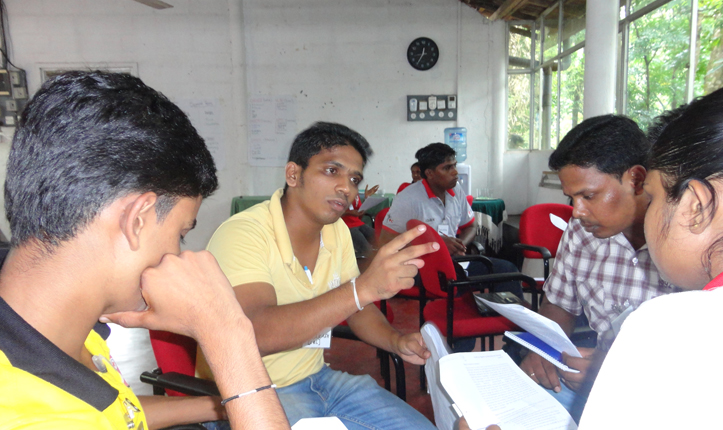Youth as agents of behavioural change
Mahieash Johnney – IFRC Communications & Information Manager in Sri Lanka
19/08/2012 – Tholangamuwa, Sri Lanka: Travelling 2 hours away from Colombo towards the hilly terrains of Sri Lanka you come to a village called Tholangamuwa. The village is a calm typical hilly side town where the hustle and bustle of the busy city has faded away. The city is buried in nature surrounded by hills, greenery and lush meadows.
Recently these hills were invaded by a group of youth, who used the calm surrounding to engage in activities that challenges the mind, body and spirit. The hills were covered with the spirit of these individuals who were practicing yoga, discussing, arguing, engaging and planning of how they could change their minds, so they can achieve a better society that they live in.
This is a part of the Red Cross flagship programme titled “Youth as Agents of Behavioral Change” or commonly known as YABC programme. This is a global IFRC flagship initiative that aims to empower youth to play a leadership role in inspiring a positive transformation of mindsets, attitudes and behaviours within themselves and their local community through non-formal values- and skills-based education.
As such, it has envisioned the firm call and strong commitment of RCRC youth to: inner change and the development of skills to promote harmony and positive attitudes within communities, and to be the living examples of our seven Fundamental Principles and Humanitarian Values.

Following the positive response to the training of YABC peer educators conducted in Vavuniya in December 2010, the SLRCS Youth Department proposed the organization of a second training of YABC peer educators for youth from branches that were not represented in the first one last year.
The training of YABC peer educators is innovative because it goes beyond skills development. It celebrates the idealism, enthusiasm and creativity of youth and encourages them to lead by example while demonstrating how to harness their energy for meaningful service delivery within their communities.
“It was tremendous to be there at the workshop and to see participants putting on dramas, dance, music and movies on themes ranging from anti-discrimination, peace building and social inclusion,” says Bob McKerrow Head of Delegation of IFRC in Sri Lanka. “We had trainers and participants from Lebanon, Philippines, Afghanistan, Malaysia and approximately 25 participants from Sri Lanka. This helped them to not only look at the local concept but to go beyond and to share experience from various parts of the world”


Considering that behavioural change is a process that requires commitment, participants will be encouraged to think beyond the training to how they can utilize what they have learned during the training, in their work. Additionally they will be asked to make a personal commitment to furthering the YABC initiative in Sri Lanka.
One of the major outcomes of the workshop was participants developing a clear action plan on how they can roll out what they learnt at the workshop in their respective branches and communities.
T. Ariyaratne, OD Specialist of Sri Lanka Red Cross, one of the organizers of the workshop said “ The action plans that were developed by these participants will be shared with the National Headquarters and the management of SLRCS. This will then become part of the programme process of the Red Cross”